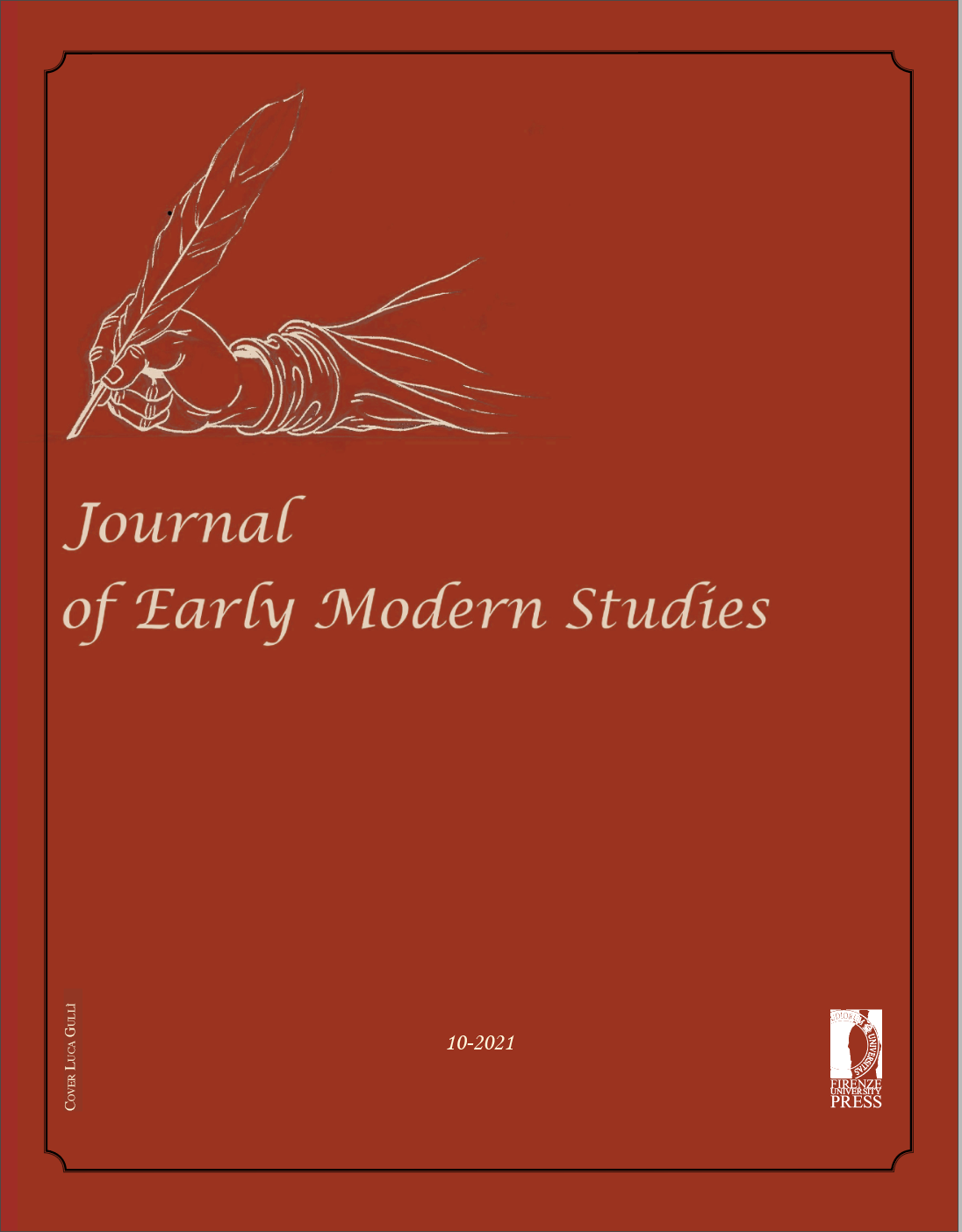Published 2021-03-15
Keywords
- Crime Literature,
- Gender,
- Ideology,
- Surveillance,
- Transgression
How to Cite
Abstract
Early Modern Crime Literature: Ideology, Emotions and Social Norms delves into the complex relation between early modern crime and its literary representations in the light of an episteme that was characterised by contrasting ideologies, forms of transgression and their containment. It explores the multi-layered, polyphonic and porous nature of crime literature as dynamised by social and cultural changes, positioning it within a shifting geometry of religious and political conflicts, class and gender divides and negotiations, genres and market forces. It also discusses the unstable status of criminals, ranging from the abject to the ambivalent to proto-mass-cultural forms of personality cult pivoting on deviance from social norms.


